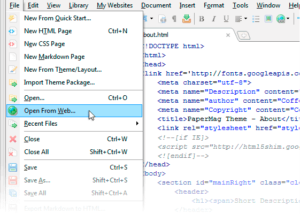What Features Should an Online HTML Compiler Have?
Features Should an Online HTML Compiler Have
HTML (Hypertext Markup Language) is the foundation of web development. While it can be coded manually using text editors or integrated development environments, online html compilers offer the convenience of real-time editing and previews. They also simplify coding by automating some tasks, making them invaluable tools for both beginners and professionals.
There are two main types of HTML editing software: text editors and WYSIWYG editors. Text editors are primarily intended for use with html online compiler and typically provide syntax highlighting. They may additionally feature templates, toolbars and keyboard shortcuts for common elements and structures. They can also include functions for version control, link checking and validation, code cleanup and formatting, spell-checking, and uploading by FTP or WebDAV.

WYSIWYG editors, on the other hand, give users a visual interface and allow them to create and edit webpages without knowing any code. Most have drag-and-drop functionality, so that elements can be dropped into place to visually resemble how they will appear on the page. Some even have a built-in browser that can display the final page, giving users an idea of what their website will look like before it goes live.
What Features Should an Online HTML Compiler Have?
While each editor has its own advantages and disadvantages, there are a few key features to consider when choosing an online html compiler. First, consider whether it supports your platform and operating system. Some editors only work on Windows, while others are only compatible with Mac OS. If you need to work with different computers, it’s worth finding an online html compiler that supports multiple operating systems.
Another important feature to consider is how well an online html compiler can help you identify errors in your code. Most browser-based HTML editing tools will display errors as red underlines or other visual cues, and they can often be hovered over to display more detailed error messages. Some tools will even suggest possible fixes.
Finally, it’s important to find an online html compiler that can handle complex tags and attributes. Most online html compilers will be able to handle basic tags such as p> and /p>, but more advanced tags should be tested for compatibility before being implemented.
When it comes to selecting an online html compiler, it’s important to keep in mind that no two editors are alike and you might have to try out a few before finding one that’s right for you. Every developer has their own style, so you should be sure to find an editor that aligns with yours. For example, if you prefer a sleek, minimalist experience, you might want to consider Atom, while Sublime and VS Code are great options for more experienced developers who want a more customizable environment. No matter which online html compiler you choose, be sure to keep a backup of your work and always validate the code before publishing it to ensure that it’s free from any errors. With the right online html compiler, you can be confident that your websites will display correctly on any device.